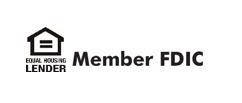Many people’s New Year’s resolutions tend to fade as quickly as new gym memberships. At Field and Main, we won’t tell you to exercise more often or to eat your vegetables, but when it comes to financial planning and money management, we can definitely help.
That’s why we’ve put together this list of financial resolutions, to guide you toward prosperity in the new year and beyond.
1. Create and Follow a Budget
Creating a budget allows you to assess your overall financial health, set goals for the coming year, and plan how to achieve them.
Start by examining how you spent your money in the previous year. Your bank and credit card statements can help with this analysis. You can categorize your expenditures into three basic areas.
Many financial advisors recommend using the 50/30/20 plan for personal budgeting, which can be broken down like this:
- Basic Needs (50%): This includes necessities such as housing (rent or mortgage), food, transportation, utilities, insurance, and minimum payments on credit cards and other loans.
- Savings (20%): This should cover retirement planning (like 401(k)s), paying off debts, building an emergency fund, and saving for major purchases, such as a home down payment.
- Wants (30%): This portion is for non-essential items, such as streaming services, gym memberships, dining out, entertainment, and luxury items like designer clothes or video games.
Take a close look at each category and assess your spending habits. Are there areas where you can cut back? Are you saving enough for retirement? Do you have an adequate emergency fund?
Review your budget periodically throughout the year, perhaps once a month, to see how you’re doing and remind yourself to stay on track to meet your goals.
There are many budgeting apps available, where you input your data regularly. Some people find that a budgeting app can help them save more and spend less because it reminds them to stick to their budget and meet their goals.
2. Create an Emergency Fund
Financial advisors recommend setting aside 3 to 6 months’ worth of your living expenses in a savings account where you can earn interest and access these funds when needed. Retirees on a fixed income, may wish to set aside a full year’s worth of living expenses as an emergency fund.
Depending on the size of your emergency fund, you might want to keep it in a money market account to earn more interest than a regular savings account.
Another option is investing in certificates of deposit (CDs), which come with terms ranging from a few months to several years. Longer-term CDs typically offer higher interest rates, but you won’t have access to those funds until the CD matures.
Some people use a strategy called a CD ladder, where they keep portions of their emergency funds in CDs at various term lengths, so they’ll have access to these funds at different points throughout the year.
3. Save More Money
Whether you are saving for a major purchase (like a home down payment), building an emergency fund, or lowering your debt, financial planners agree that it’s always better to save rather than spend.
Take a close look at your budget to find ways to cut back on expenses. Small changes, such as brewing coffee at home and preparing lunch for work, can lead to significant savings over time.
Many people subscribe to streaming services for a particular show and then forget about them. Review your credit card bill for recurring charges that you could cancel temporarily.
Consider automating your savings by setting up a specific amount or a percentage of each paycheck to transfer into a savings account designated for emergencies. You can easily set this up in your Field & Main Mobile app to ensure your savings grow consistently. Having this money automatically transferred is a good way to avoid spending it.
This can be especially helpful if you have a major purchase coming up, such as buying a home or a vehicle. The more you can save, the less you’ll have to borrow. When it comes down to it, you’re better off earning interest on your savings than paying interest on a loan.
4. Reduce Your Debt
Some debts, such as mortgages or student loans, are often unavoidable and can even be seen as investments. A home typically appreciates over time, and an education can enhance your career.
Mortgage interest is tax-deductible for loans used to buy or improve a home, and student loan interest is deductible up to $2,500 per year.
To tackle your debts, start by focusing on those with the highest interest rates, which are often credit card debts. Credit cards not only carry high interest rates but also contribute to long-term financial strain. That’s why many financial professionals recommend paying your higher-interest loans, such as credit card debt, while maintaining the minimum payments on your mortgage and other loans.
If you have several loans to pay off, such as credit cards and vehicle loans, you could benefit from a debt consolidation loan, such as a personal loan or a home equity line of credit (HELOC). Debt Consolidation gives you the benefit of having just one loan to pay, instead of several, and you can often get a lower interest rate to save money.
We Can Help You Meet Your Financial Goals
At Field and Main, we are dedicated to assisting our customers with their financial needs. If you have questions about reaching your financial goals, please visit one of our banking center locations in Henderson, Cynthiana, Lexington, Kentucky, or Evansville, Indiana. We would love to help you learn more about our services.




